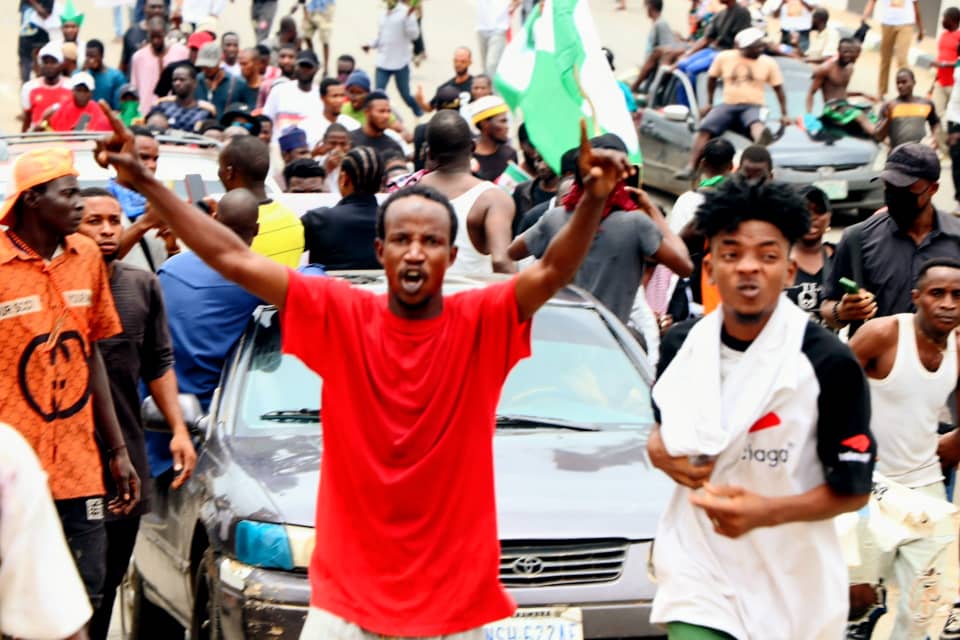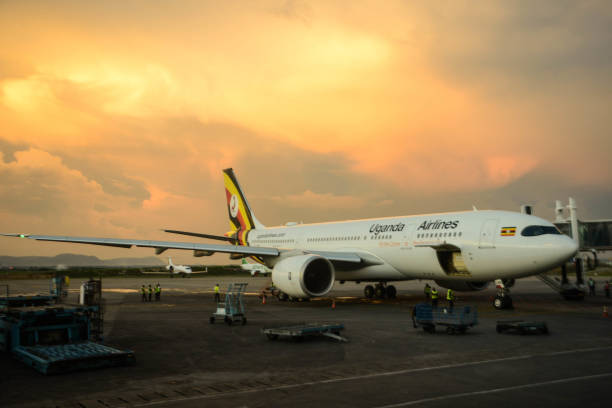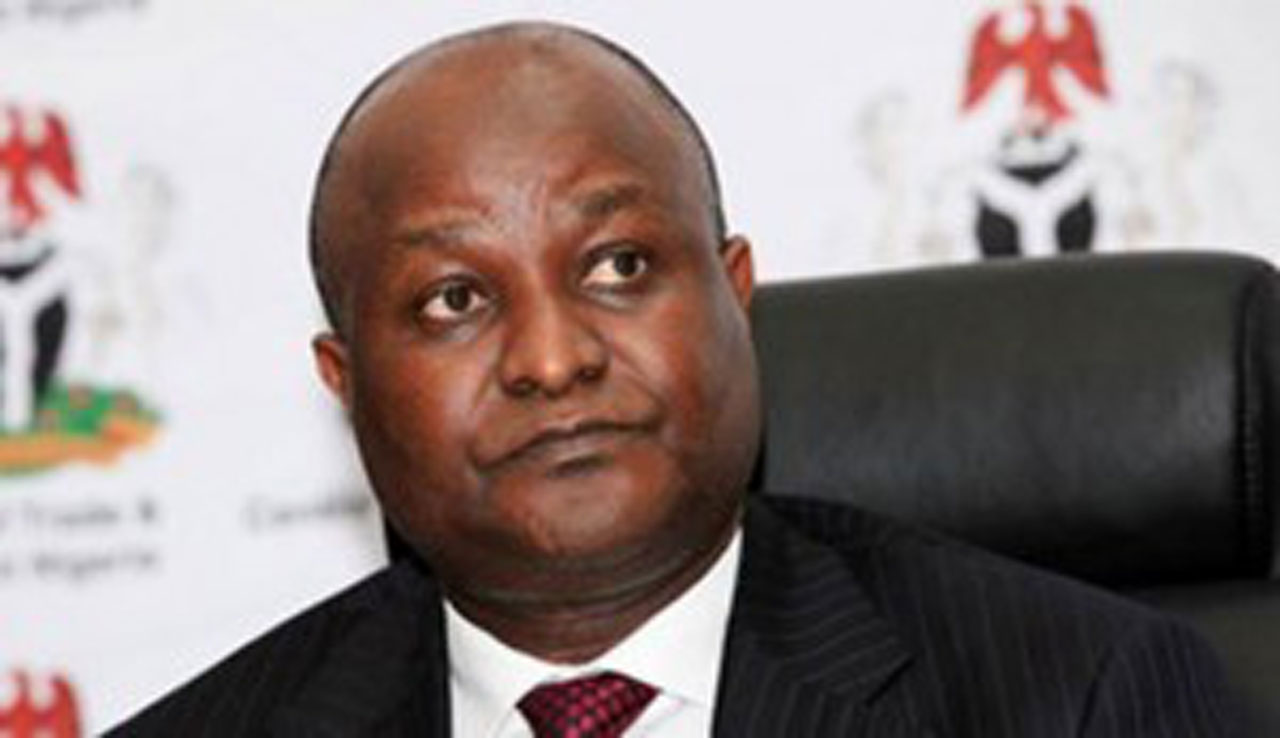
• Organisers confirm plans, issue demands
• Security forces caution demonstrators, vow to ensure order
• Yoruba group accuses Sowore of exploiting hardship for political gain
• Ohanaeze faction dissociates S’East from protest
• Northern youths group pledges support for action
• Securing public safety sacrosanct, Lagos tells protesters
• Political scientist calls for proactive measures to avert protests
• Group urges planners to reconsider strategy
Barely two months after the nation was forced to hold its breath over a planned mass protest, whose outcome seemed unpredictable, the Federal Government and Nigerians are bracing again for another demonstration.
The #EndBadGovernance protests, which rocked several parts of the country in August, were provoked by discontent over the rising cost of living.
If it holds as planned, tomorrow’s #FearlessInOctober protest, which coincides with Nigeria’s Independence Day anniversary, will be the second mass protest to hit the President Bola Tinubu government inaugurated on May 29, 2013.
The organisers have maintained that all is set for the demonstration, stressing that its primary focus is on the high cost of governance, soaring electricity prices, exorbitant interest rates, persistent insecurity, unpaid pensions, the burden of student debt, stagnant wages, rampant corruption, and the suppression of dissent.
They also called for re-nationalising the Nigerian National Petroleum Company Limited and the electricity distribution companies.
National Coordinator of the Take It Back Movement, Juwon Sanyaolu, confirmed that mobilisation efforts are underway, with Nigerians nationwide rallying in support.
He revealed that a formal letter requesting adequate security for the protesters was sent to the Inspector General of Police, Kayode Egbetokun.
“Preparations are in top gear,” Sanyaolu said. “Nigerians are mobilising from every corner of the country. We have also written to the Inspector General of Police, informing him of our protest locations and reminding him of the police’s constitutional duty to protect protesters, not suppress them as we’ve seen in the past.”
He further noted that the protest would only be called off if the current administration addressed the protesters’ demands.
“The only way the Tinubu regime can prevent this protest from happening is to address the demands of the Nigerian people,” Sanyaolu declared. “They must reverse the fuel price hike, release all arrested protesters, and bring an end to the crippling inflation in the country.”
EXPECTEDLY, the authorities are not leaving anything to chance.
The Lagos State Government advised the organisers not to disrupt social and economic activities.
It reiterated that the governor’s directives to the Lagos State Police Commissioner to maintain public safety and order during the protest still stand.
The state government also stressed that a Lagos High Court order restricting the protest to Freedom and Peace Parks in the Ojota and Ketu areas of the state remains binding.
At a press briefing last Thursday, the protest organisers stated that the event in Lagos would commence at Ikeja Underbridge at 7:30 a.m., with participants marching through various streets to raise awareness of what they described as the federal government’s ‘anti-poor policies’.
They also requested that the Lagos State Commissioner of Police, Olanrewaju Ishola, provide adequate security for all protesters in line with the Police Establishment Act 2020.
Responding to questions by some journalists on the issue yesterday, the Lagos State Attorney-General and Commissioner for Justice, Mr Lawal Pedro (SAN), said Governor Babajide Sanwo-Olu is not opposed to any group of residents expressing their views about any government by way of public protest, but that such expression must be done within the confines of the law.
Pedro said a Lagos High Court had restricted protests in the state to Freedom and Peace Parks and urged the protesters to respect the order.
He said: “We have and shall continue to engage the civil societies and NGOs in Lagos who are genuinely interested in the development of Lagos State to explain and enlighten them that Governor Sanwo-Olu is not opposed to any group of residents expressing their views about any government by way of public protest, as it is their fundamental right guaranteed by the Constitution of Nigeria 1999.
“However, the fundamental rights to freedom of speech, association and assembly are not absolute and by Section 45, Section 215 (4) of the Constitution of Nigeria (as amended) and Section 4 & 10(2) of the Police Act, it is lawful for the Governor of Lagos State or the Attorney General on his behalf to give the Commissioner of Police directives for maintaining and securing public safety and order that may impact on the exercise of these fundamental rights.”
Pedro insisted that the state government would not permit any street protest that could be hijacked by criminal elements whose agenda is to destroy the government or other residents’ property.
“In that respect, we advise that the organisers utilise the designated venues in the state for public protests, namely Freedom Park and Peace Park, for adequate protection and coverage of the protest by press members.
“It is the same set or group of people that organised the last protest planning the October 1 protest, so they should be guided by the interim preservative order of injunction of the court restricting public demonstrations in the state to designated venues.
“Moreover, a substantive action is pending in court against them wherein an order of interlocutory and perpetual injunction is being sought to permanently restrict any person or group of persons that wish to organise public protests in Lagos state to do so at designated venues,” he said.
Efforts to obtain a comment from police spokesperson ACP Muyiwa Adejobi were unsuccessful.
Similarly, the Director of Media Operations, Major General Edward Buba, did not respond to calls or messages regarding the protest.
However, a police signal sighted by our reporters indicated that the IGP had instructed Commissioners of Police nationwide to engage with protest organisers.
The signal, referenced DTO: 261604/09/2024, 0900/DOPS/FHQ/ABJ/VOL.T9/395 X Security General X Re: CB, read: “The IG has ordered you to continue to engage in meetings/dialogue with the leadership of identified groups to dissuade them from the planned protest.
“Deploy covert operatives to all nooks and crannies for intelligence gathering/sharing. All necessary measures should be taken, particularly during the independence celebrations, to ensure nothing untoward is allowed.”
The signal also stressed that any attempts by miscreants or hoodlums to engage in violence or destruction of property should be met with swift resistance.
Commissioners of Police were instructed to ensure officers are on high alert and maintain well-equipped standby units at all levels to prevent any breakdown of law and order.
Similarly, at a stakeholders’ meeting in Lagos over the weekend, representatives from the Police, Department of State Services (DSS), Army, Immigration Service, and Civil Defence Corps called for planned protests to be conducted peacefully.
Commissioner of Police Olarewaju Ishola, who convened the meeting, stressed that while people have an undeniable right to protest, the law also guarantees all citizens’ safety and peaceful existence.
He reassured the public that while protests would be allowed, the police would not tolerate breaking law and order.
“We are not stopping anybody from protesting, it is your legitimate right,” CP Ishola stated. “We will protect all so that miscreants do not hijack it.”
He said demonstrators must respect the rights of others and avoid disrupting public peace.
The police chief also clarified that a recent court order restricting protests to the Gani Fawehinmi Freedom Park in Ojota would be enforced. “The protesters must keep within the ambience of what the law says, no other place in Lagos is approved,” he added.
Echoing the police’s position, the Director of the DSS in Lagos, Mr Dapo Amao, affirmed that citizens have a right to express their grievances but must do so in a civilised manner.
He highlighted the need to prevent the protests from being taken over by criminal elements.
“We will collaborate with other security agencies to secure life and property,” Mr Amao assured. We will provide an enabling environment for businesses to thrive and ensure things do not get out of hand.”
The State Commandant of the Nigeria Security and Civil Defence Corps (NSCDC) in Lagos, Mr Adedotun Keshinro, urged people to give the government time to address the country’s economic challenges. “Do not allow the protest to escalate to violence,” he pleaded. If there must be a protest, it must be peaceful.”
Representatives from the Trade Union Congress (TUC) and Nigerian Labour Congress (NLC) claimed they were unaware of any planned protests at the meeting.
However, they urged the security forces to convey the depth of the hardship in the country to those in power.
“Politicians are living in affluence and are quite unmindful of the hardship people are going through,” the labour leaders asserted.
They called on the government to address the root causes of discontent rather than resorting to oppression.
A Nigerian Bar Association (NBA) representative in Lagos supported the labour leaders’ sentiments.
He argued that while many politicians claim to understand the people’s plight, they are detached from the reality of the situation.
“There is hardship on the land and only the poor are feeling it,” he lamented.
While the NBA would not condone violence, the lawyer acknowledged the lack of reasons for jubilation.
“All we can celebrate is hardship,” he concluded. “The only thing that binds us together is hunger and poverty.”
BUT a Yoruba youth group dismissed the protest as a political manoeuvre by activist Omoyele Sowore to further his political ambitions.
The Yoruba Youth Socio-Cultural Association (YYSA) argued that Sowore was using the current economic hardship to rally support for his potential 2027 presidential bid.
In a statement released in Ibadan, the Oyo State capital, YYSA National President Olalekan Hammed said, “Sowore is capitalising on the current difficulties to turn people, particularly the youth, against the government. He’s attempting to build a support base for his future aspirations.”
The group acknowledged Sowore’s drive but stressed that the presidency requires more than activism and online media experience.
It suggested he contest a local government chairmanship in his home state of Ondo to gain practical experience and test his popularity at the grassroots level.
“It’s not too late for Sowore to start from a smaller office and learn about governance,” Hammed added. “He still has time to prepare adequately for his future ambitions by gaining practical experience in government.”
The YYSA urged the public to see the protest for what it is: a political move rather than a genuine demonstration of concern for the nation’s challenges.
Relatedly, Prof Ishaq Akintola, the Executive Director of the Muslim Rights Concern, expressed his dismay at the trend of protests on Independence Day. He argued it was “sacrilegious” to mar what should be a joyful celebration. He also cautioned against protests that hoodlums could easily exploit.
Also, a faction of the pan-Igbo socio-cultural organisation, Ohanaeze Ndigbo, distanced the South East region from the protest.
The group’s Secretary General, Mazi Okechukwu Isiguzoro, announced this stance in a statement yesterday, saying the group was facing increasing pressure from the organisers and conveners of the nationwide protests.
He insisted that the South East would not take part in the demonstrations.
“These agents are, with fervent desperation, trying to lure our South East residents, alongside Igbo communities residing in the Northern and Western regions, to endorse and participate in this affair,” Isiguzoro said.
He further revealed, “Disturbingly, we have uncovered that two former presidential candidates from the 2023 elections are covertly orchestrating these protests, enlisting surrogates who masquerade as civil society organisations.”
The statement concluded with a strong warning to the Igbo community, both within Nigeria and abroad, to stay away from the protests, which it believes are a dangerous ploy by desperate political elites and opposition leaders to use Igbo as scapegoats, further escalating existing tensions amid the economic downturn.
HOWEVER, the Northern Youth Council of Nigeria (NYCN) announced its intention to participate in the planned protest if it goes ahead.
Comrade Isa Abubakar, the NYCN President, disclosed the group’s solidarity with the Nigerian people amid the ongoing economic hardship.
The announcement followed a statement from another northern group, the Arewa Youth for Peaceful Coexistence (AYPC), which urged against the protest and advocated for dialogue instead.
Abubakar expressed scepticism towards groups dissuading protests, suggesting they are influenced by the government’s appeasement.
He stressed that the upcoming protest is a grassroots movement driven by communities directly affected by the economic crisis.
He further criticised the AYPC’s statement, saying the group does not represent the northern population suffering under the current conditions.
He justified the protest by highlighting the rapid increase in fuel prices and their subsequent impact on living costs.
IN other reactions, a prominent Abuja-based political scientist and peacebuilding expert, Dr Ayokunle Fagbemi, urged President Tinubu to take decisive action to prevent the protests.
To stabilise the Nigerian state, Fagbemi advocated policy changes and presidential directives to address the energy crisis and restore public trust.
He specifically recommended that the Tinubu administration release all protesters currently detained across Nigeria, relocate IPOB leader Nnamdi Kanu from DSS detention to a secure halfway house, and invoke Section 175 of the Constitution, granting the prerogative of mercy and clemency, as per the Administration of Criminal Justice Act.
Fagbemi, who is the Executive Director of the Centre for Peacebuilding and Socio-Economic Resources Development (CePSERD), made these recommendations during his keynote address at the National Association of Seadogs’ Citizens’ Forum on the energy crisis, held in Abuja on Saturday.
He urged Tinubu to adjust his speech for Nigeria’s 64th Independence Anniversary to avert the widely anticipated protests.
He implored the President to “activate measures that can restore the responsiveness and integrity of his administration as a required precursor to renewed citizens’ trust, confidence, and understanding that citizens are only actively engaged in participatory governance with regards to the prevalent energy crisis”.
Fagbemi also called on the National Assembly to focus on its constitutional oversight role and avoid another probe into Nigeria’s energy crisis, which he believes would be counterproductive.
Instead, he suggested that the Senate President request notarised data and reports from stakeholders in the energy sector, which a research study group would review to provide independent verification, validation, and legislative briefing notes for proactive interventions.
He called on civil society and the organised private sector to articulate citizens’ demands and participate transparently in implementing proposed recommendations.
Also, a civil society group, the Congress for Good Governance for National Unity (CGGNU), appealed to the organisers of the protest to reconsider their position.
The group’s primary concern is the potential for civil unrest and the safety of ordinary Nigerians, particularly the poor, who may be vulnerable to danger without adequate protection.
In a statement released by the group’s national president, Abiodun Fanoro, CGGNU acknowledged the noble intentions behind the protest but urged organisers to reflect on the outcomes of previous demonstrations.
Despite efforts to maintain peace, past protests have often failed to achieve their goals and resulted in tragic loss of life.
The group therefore stressed the need for a change in strategy.
The group suggested focusing on specific, achievable goals that are widely considered reasonable and legitimate, rather than pursuing broad, ambitious goals that have historically yielded little progress.
The statement also criticised the protest planners for failing to capitalise on the limited successes achieved during and after previous protests.
It noted that these were opportune moments to build upon gains, as authorities were often more receptive to dialogue during such periods.
CGGNU said most Nigerians, particularly those in the informal sector, may not favour further unrest due to its frequency and potential impact on their livelihoods.






